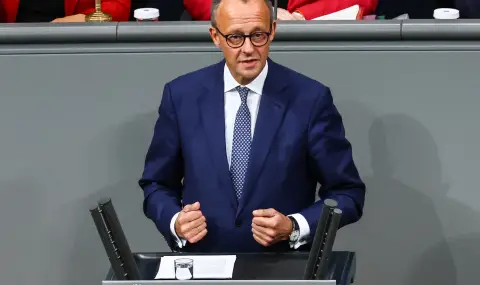Just three months before Germany's early parliamentary elections, the conservative opposition gains a lead in public opinion polls, reports DPA, quoted by BTA.
The vote is scheduled for February 23 after Chancellor Olaf Scholz's ruling triple coalition collapsed. The opposition Christian Democratic Union (CDU) and its Bavarian sister party – The Christian Social Union (CSU) leads the polls with 33% support among voters for the centrist bloc headed by Friedrich Merz, which marks a slight increase compared to the previous survey.
Regular parliamentary elections were originally scheduled for September next year, but Germans will vote earlier after Scholz fired Finance Minister Christian Lindner last week over long-running disagreements over the 2025 budget.
Following Lindner's removal, his Free Democratic Party (FDP) left the coalition government, with the chancellor losing his majority in the Bundestag (the lower house of parliament).
Despite criticism of his decision to release Lindner, Scholz yesterday said he acted “correctly” and that this move was inevitable. In his first public statement since the new election date was set, he urged lawmakers to mobilize their efforts and pass critical bills before the vote. “Let us act united. That would be good for our country. The path to compromise is the only true path“, emphasized Scholz.
Sholz himself, however, faces a serious fight to keep his post after the elections. His German Social Democratic Party (GSDP) has the support of just 15% of voters, while Union 90/Greens, who are likely to nominate Economy Minister Robert Habeck as chancellor candidate later this week, have 11% support.< /p>
The poll was conducted by the “Yugav“ among 2,193 respondents in the period November 8-12. Support for the other parties is stable compared to previous surveys.
About 19% of respondents said they would vote for the far-right Alternative for Germany, marking a one percentage point increase in support over the previous poll. The populist party “Alliance of Sarah Wagenknecht“ loses one percent and has the support of 7% of those polled.
SvDP and the “Lefts” remain unchanged, receiving 5% and 3% respectively. This means that the two parties will have to fight to keep their seats in the Bundestag.
A change is also observed in the concerns of the Germans about the economic situation in the country – the proportion of those concerned rose to 14%, up from 8% in October. At the same time, concern about migration decreased from 32% in October to 23% in November.
